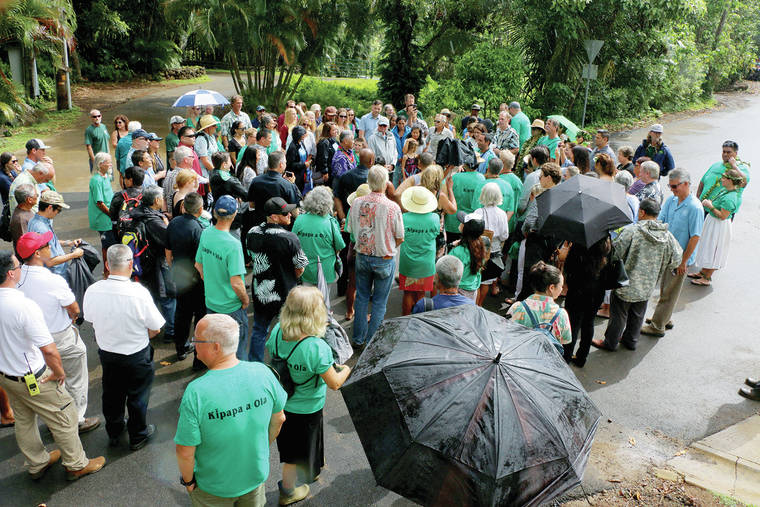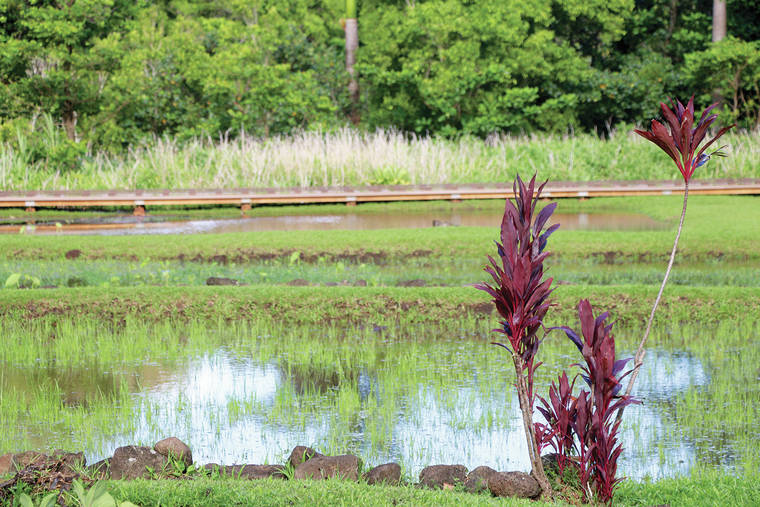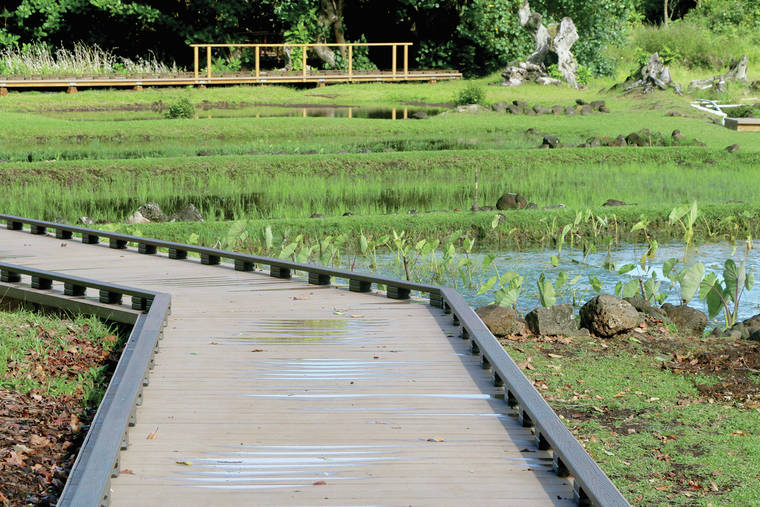HONOLULU — Twenty years in the making, the Ha‘ena communities’ efforts to fully participate in the protection and management of Ha‘ena State Park took another evolutionary step.
The state Board of Land and Natural Resources approved a one-year, revocable permit for the nonprofit Hui Maka‘ainana o Makana to oversee and manage a park-reservation system, including collecting both parking and entry fees as well as an integrated shuttle system that will reduce the number of cars that enter the park each day. The hui will also manage the cultural landscape of the park.
Ha‘ena State Park is the gateway to the adjacent and world-famous Napali Coast State Wilderness Park, which benefits from the capacity-controls now in place at Ha‘ena.
Hui Maka‘ainana o Makana will subcontract The Hanalei Initiative to manage the reservation and parking system and to operate the shuttle, while the hui will conduct malama ‘aina (care for the land) activities and resource enhancement in the park.
The Hanalei Initiative is a community-based nonprofit dedicated to finding sustainable solutions for pressing issues on the North Shore.
According to the state Department of Land and Natural Resources Division of State Parks submittal to the BLNR, “the two groups will work to develop an integrated operational plan that builds on the success of the established online reservation system (currently contracted to a private company) … to develop an integrated operational plan that builds on the success to allow a seamless, visitor-friendly reservation system for the shuttle, as well as the onsite parking and entry for anyone wishing to visit Haena State Park.”
“This is both evolutionary and revolutionary,” State Parks Administrator Curt Cottrell said in a press release.
“In 1999, Hui Maka‘ainana o Makana was chartered with a focused, place-based mission to care for cultural resources inside the park,” Cottrell said.
“Volunteers have dedicated thousands of hours to make the landscape one that is culturally and ecologically healthy. The hui and THI were instrumental in working closely with DSP after the 2018 torrential rains that caused significant damage at Ha‘ena.”
The rain event and subsequent year-long closure of the park provided the opportunity to implement a number of improvements and management recommendations that were proposed in a park master plan that the tight-knit North Shore community had contributed to over the course of two decades.
“It has always been the desire of Hui Maka‘ainana o Makana and our community to protect Ha‘ena for generations to come,” said Presley Wann, hui president.
“This is our ancestral home, and it is our kuleana to care for this sacred place. We strive every day for ‘aina momona (a place that is healthy and prosperous), and we recognize that to achieve this we must create a balance between the desires of the numerous visitors who want to experience the natural beauty of this area and the unique recreational opportunities it has to offer, and the health of our natural and cultural resources and the very residents who call this place their home,” said Wann.
“We appreciate the opportunity to be a partner with State Parks in this journey towards sustainability and ‘aina momona,” he said.
“The expanded role of Hui Maka‘ainana o Makana in our partnership with DSP for the management of Ha‘ena State Park is a huge step forward in the paradigm shift towards adaptive resource management and the development of community-based economic opportunities,” said Kirsten Hermsted, hui executive director.
“Our community is very excited to see this happening after planning for it for over 20 years,” she said.
The community-based management partnership at Ha‘ena State Park is expected to become the exemplar for adaptive resource management at other parks, as appropriate.
“The COVID-19 pandemic, as well as important legislation this year, prompted a significant shift to adaptive resource management,” said Suzanne Case, BLNR chair.
“It moves management of natural and cultural resources in Hawai‘i into a realm where rules can be quickly and efficiently changed to reflect fast-changing economic and resource-protection needs and factors that serve local communities and all of Hawai‘i best,” she said.
Hui Maka‘ainana o Makana and THI anticipate the North Shore shuttle service, which suspended operations during the pandemic, could be up and running again in July when the hui takes over the operations in the park.
The revocable permit provides the hui the ability to fully integrate a shuttle service.
The current revocable permit with Republic Parking expires in July, and Hui Maka‘ainana o Makana intends to coordinate a seamless handover to avoid as much interruption as possible.
DSP will receive all entry fees as rent when the shuttle service is operating. However, if Hui Maka‘ainana o Makana does not provide a shuttle service, rent will be divided 90% to DSP and 10% to the hui of net operating income. The one-year revocable permit is established on a month-to-month basis.




